Accessibility Sign up for our newsletter
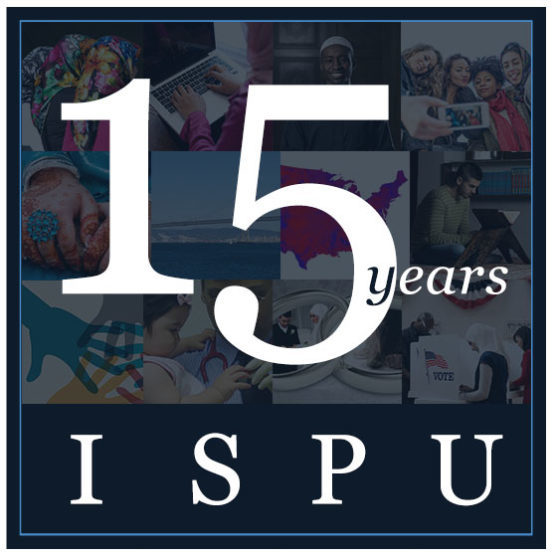


To commemorate our 15th anniversary, we asked some of our supporters, partners, board, and staff one simple question: What word do you most associate with ISPU?
.

ISPU in the Public Sphere
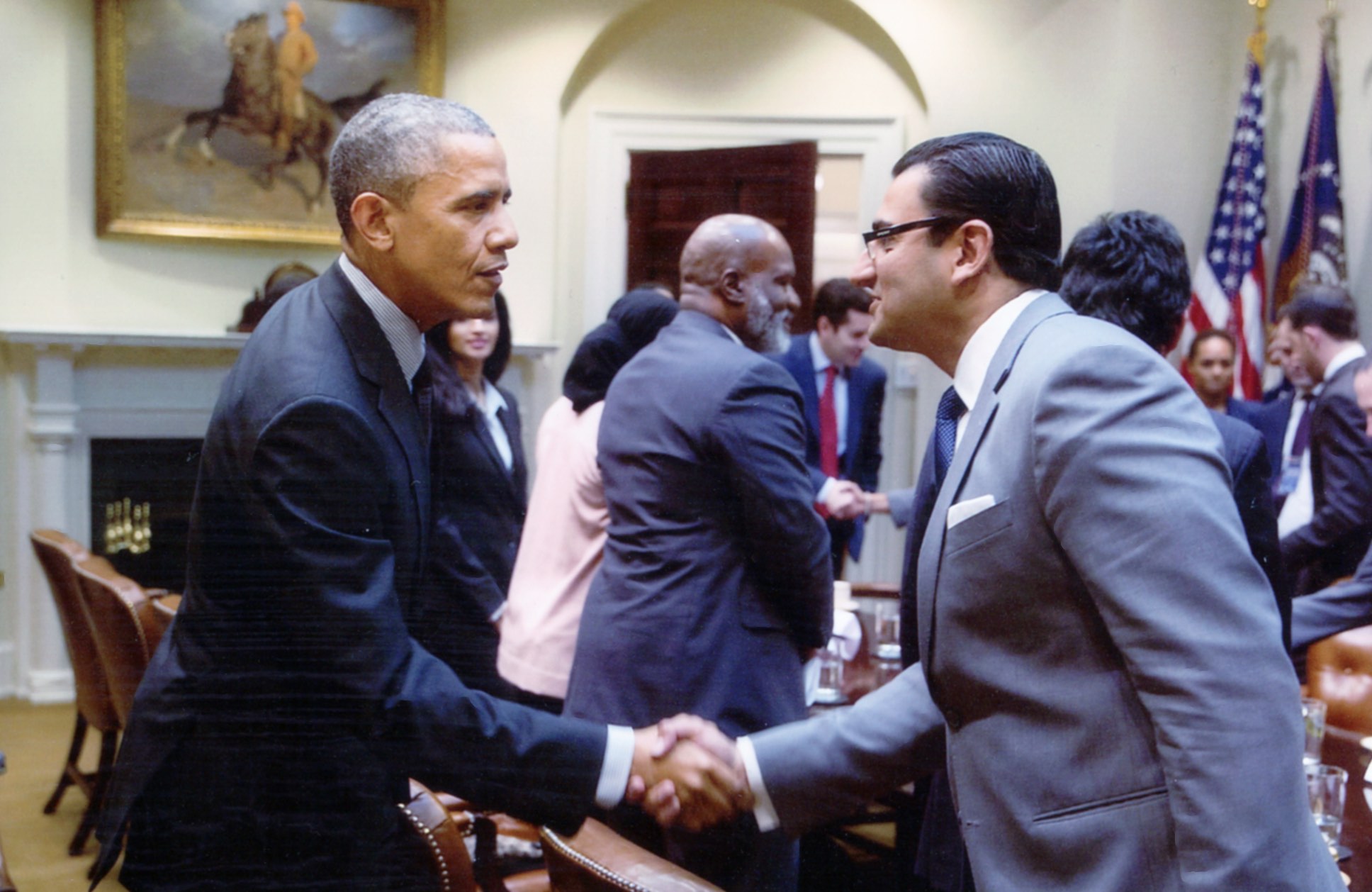
A crucial part of counteracting misinformation is providing American Muslims with a seat at the table, where they can talk about the issues that affect their communities. This is important for policy circles as well as in media coverage. Throughout our history, ISPU has increasingly become more visible in the public sphere, making sure Muslim voices are heard by a wider audience. In February 2015, the Obama Administration reached out to American Muslim leaders across country, including former ISPU COO and Director of Policy Impact Farhan Latif, to attend a closed-door roundtable at the White House. The group discussed civil rights, hate crimes, national security, and civic engagement in Muslim communities. A year later, Director of Research Dalia Mogahed would appear on The Daily Show, representing ISPU and discussing the media’s representation of Muslims. Her TED talk a month later has been seen more than 2.5 million times. Participation in these highly visible platforms were key milestones in ISPU’s history, allowing us to reach a new, broader audience with our research.
Muslims for American Progress
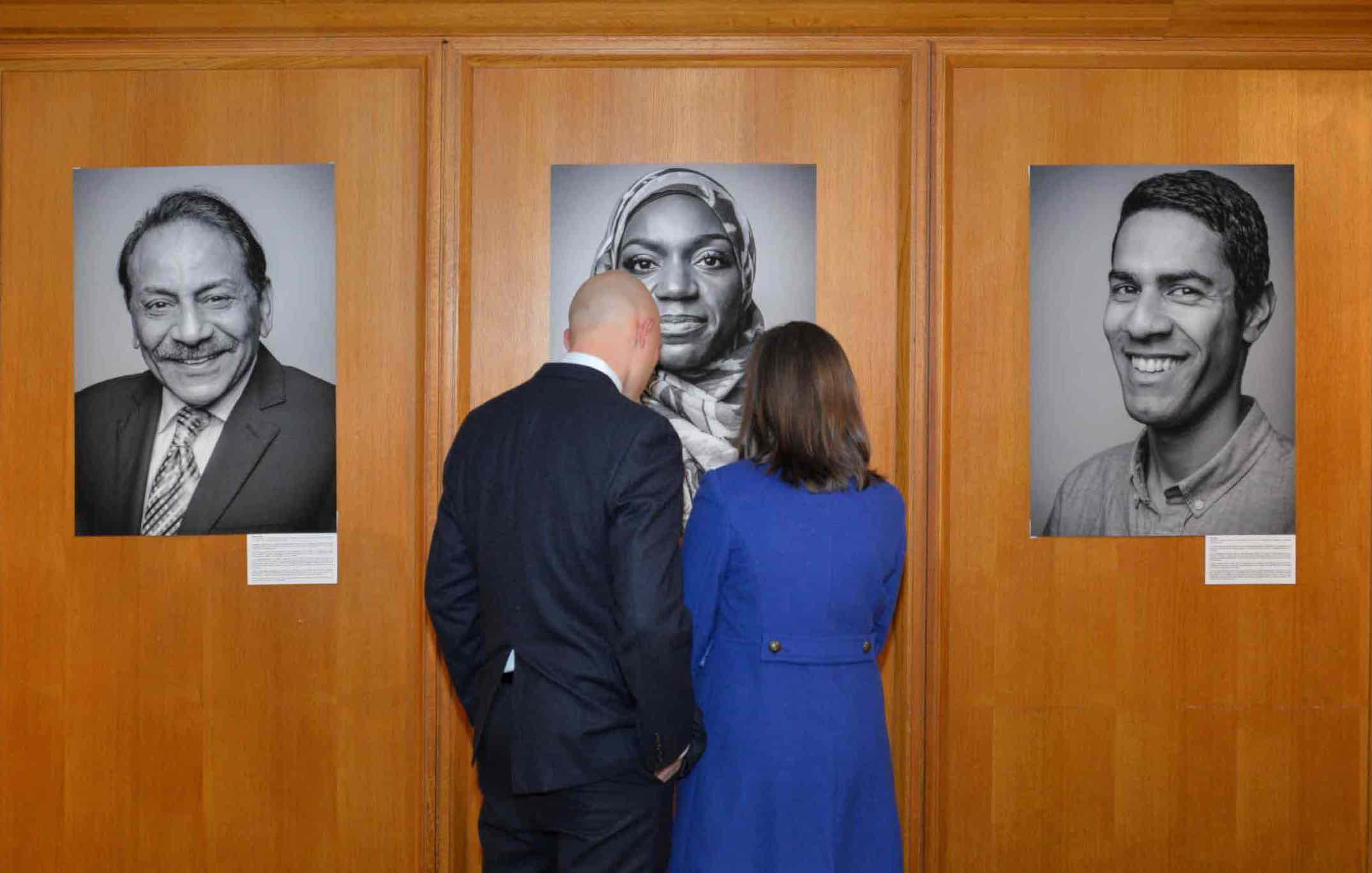
In January 2016, we started work on a different type of project, one that bridged the quantitative and the qualitative. In recent years, it had become increasingly clear that Muslims in America were rarely portrayed as nuanced and complex human beings. Our Muslims for American Progress (MAP) project would allow people to get to know real American Muslims, not only through data about their contributions but also through stories of their everyday lives.
For this project, we used Michigan as a case study. Our team interviewed a diverse group of 146 Michigan Muslims that were making contributions in areas such as medicine, civics, education, entertainment, and sports. These individuals shared their stories, struggles, and accomplishments with us, explaining how being Muslim inspired their work. Meanwhile, we used active licensing registries for the state of Michigan to determine the number of licensed doctors, lawyers, teachers, engineers, and more who happened to be Muslim. Using numbers from previous studies, we also calculated that Muslims in Michigan represented about 2.75% of the total state population, who spent more than $5.5 billion in consumer spending and donated $177 million to charity in 2015 alone. In 2017, we would share findings from our project through presentations and photo narrative exhibits to a wide audience, from churches in rural Michigan to restaurants in downtown DC. Our research would also inform diversity trainings by the Department of Justice. And amidst the dissemination of our first report, we have begun work on our second in New York City—we hope the impact will only continue to grow in the years to come.
ISPU in the Library of Congress

On December 2015, we received a very special email. The United States Library of Congress had selected our website for inclusion in their historic collection of Internet materials related to public policy. The Library of Congress preserves the Nation’s cultural artifacts and provides enduring access to them. And the curators considered our website “to be an important part of this collection and the historical record.”
Our inclusion in the Library of Congress was a clarifying moment for ISPU; we realized just how far our organization had come. For more than 10 years, ISPU had been informing public policy. Its addition to the Library’s collection meant that not only would others gain access to our vital work but that it would become part of the historical record of our time, archived for future generations.
Our First Debate

A key part of Thought Leadership is providing a platform for the diverse voices in the American Muslim community to be heard, and in 2015, we put this concept into action. ISPU is unique in our ability to provide impartial forums for discussion, and we felt a debate would be an excellent opportunity to model how to have a civil conversation about important, controversial topics that affect American Muslims.
At the 2015 ISNA conference, ISPU hosted our first debate, which focused on the philosophical question of boycott versus engagement with those with whom you don’t agree. Abbas Barzegar, Hatem Bazian, Samar Kaukab, and Salam Al-Marayati presented and explained each of their views on the topic, representing perspectives on both sides of the issue. The debate had an overflow audience of 250 people and was live tweeted, spurring an exciting online discussion. This discussion was also notable for other reasons. One attendee tweeted, “The biggest takeaway from ISPU debate 2015 is that we can have a civil and open debate within our community.” Another tweeted, “We need more real & raw conversations like these.”
Reimagining Muslim Spaces
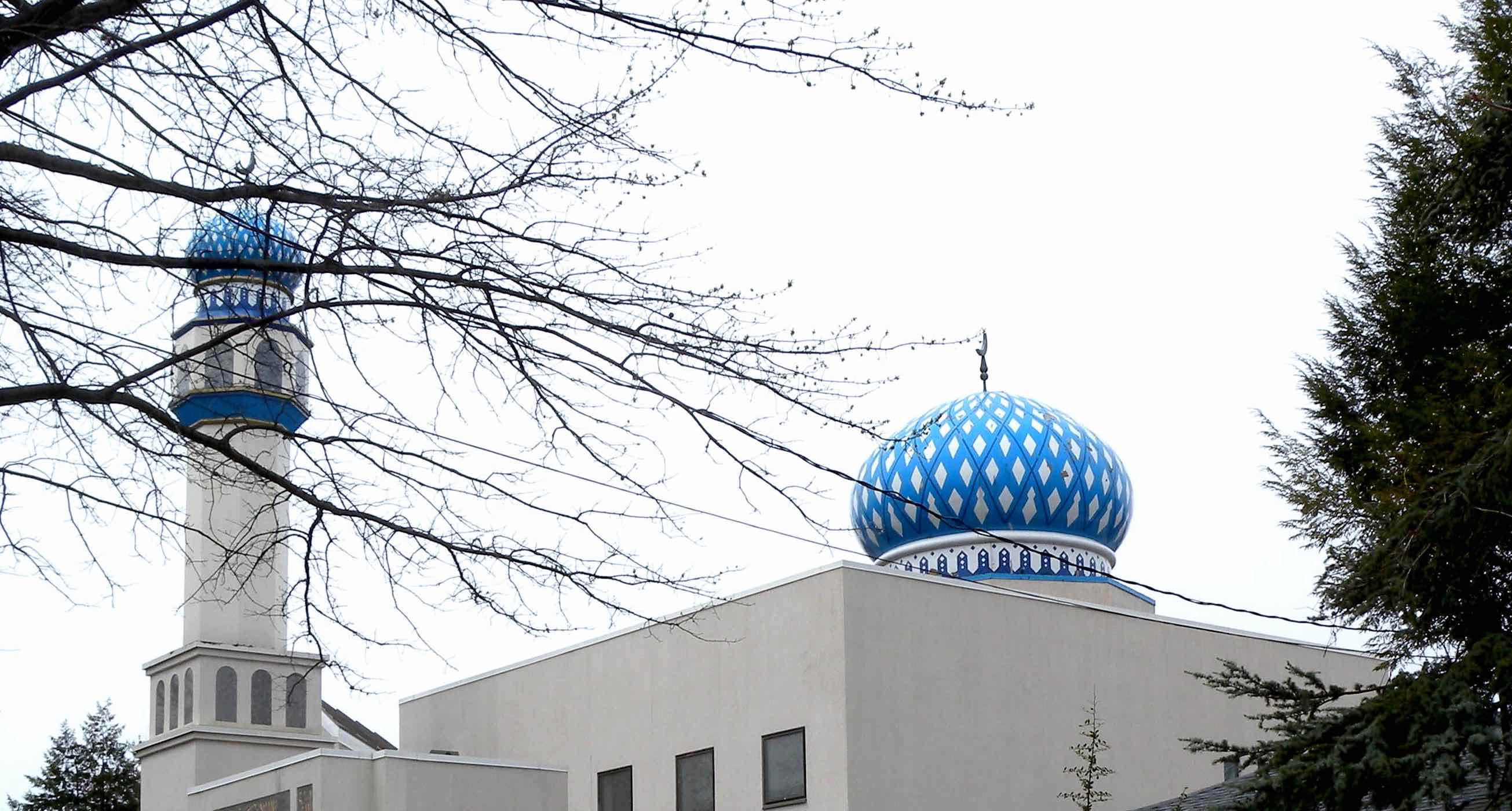
In 2014, ISPU began work on our most extensive research project to date. Reimagining Muslim Spaces (RMS) was created to help mosques and community spaces become more welcoming and dynamic places for all. It all started with a California community screening of UnMosqued, a documentary that examined the phenomenon of young adult Muslims feeling deeply dissatisfied with most American mosques. This event was followed the next day by a convening of the documentary filmmakers, mosque and youth group leaders, imams, academics, and other Muslim leaders to discuss the alienation that many young people, women, and converts experience in mosques across the country.
Over the next three years, RMS researchers, led by Principal Investigator Dr. Ihsan Bagby, led focus groups in mosques, interviewed mosque leaders nationwide, analyzed existing survey data of American mosque-goers, and conducted a thorough literature review of studies on religious congregants from a multi-faith perspective. The end result was a series of six in-depth case studies on different Muslim spaces across the country and a report filled with data-driven recommendations to help mosques become welcoming, well-governed, and hubs for hope.
In an effort to get our findings into the right hands, we partnered with Muslim Legal Fund for America (MLFA) to connect Muslim leaders in 15 cities across the country with our research. And we worked with two mosques to educate and train their communities as they implement concrete recommendations from the study.
ISPU 2.0 Is Born
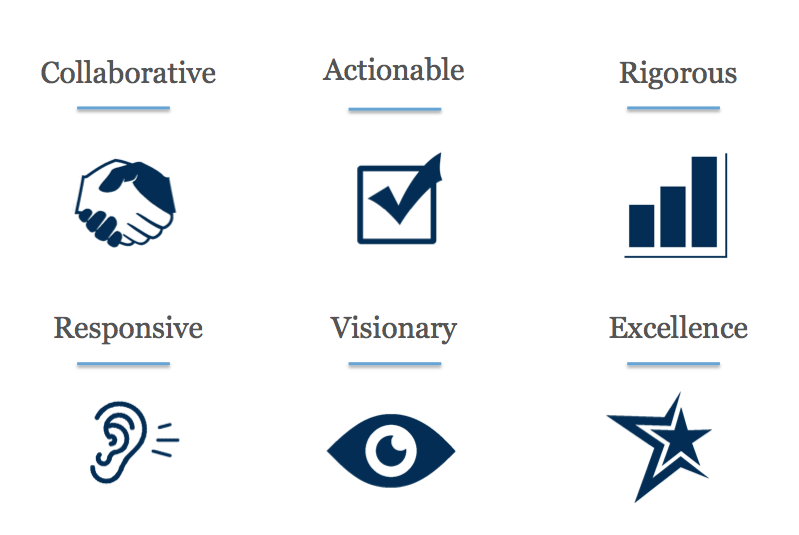
In 2015, having taken stock of our first 10 years, ISPU launched a new strategy that prioritized impact. An acceptance of our limited resources and a desire for greater resonance led to a narrowing of our focus to research for and about American Muslims. ISPU 2.0 was born.
The desired goal was simple: to place ISPU’s solution-seeking, evidence-based recommendations in front of those that needed them and to become the go-to resource for reliable research on the American Muslim community. The result? A new three-part strategy that bridges the research-to-action gap. First, we discover by conducting solution-oriented research that generates data or uncovers successful strategies and practices. Then, we educate by bringing our research to a wide array of audiences in person and through mass media. Finally, we enable by collaborating with a diverse set of partners who use our research to plan, strategize, and improve policies and practice. ISPU 2.0 broadened our reach, deepened our impact, and strengthened our collaboration with change makers nationwide.
Contributing to the Encyclopedia of the Human Genome
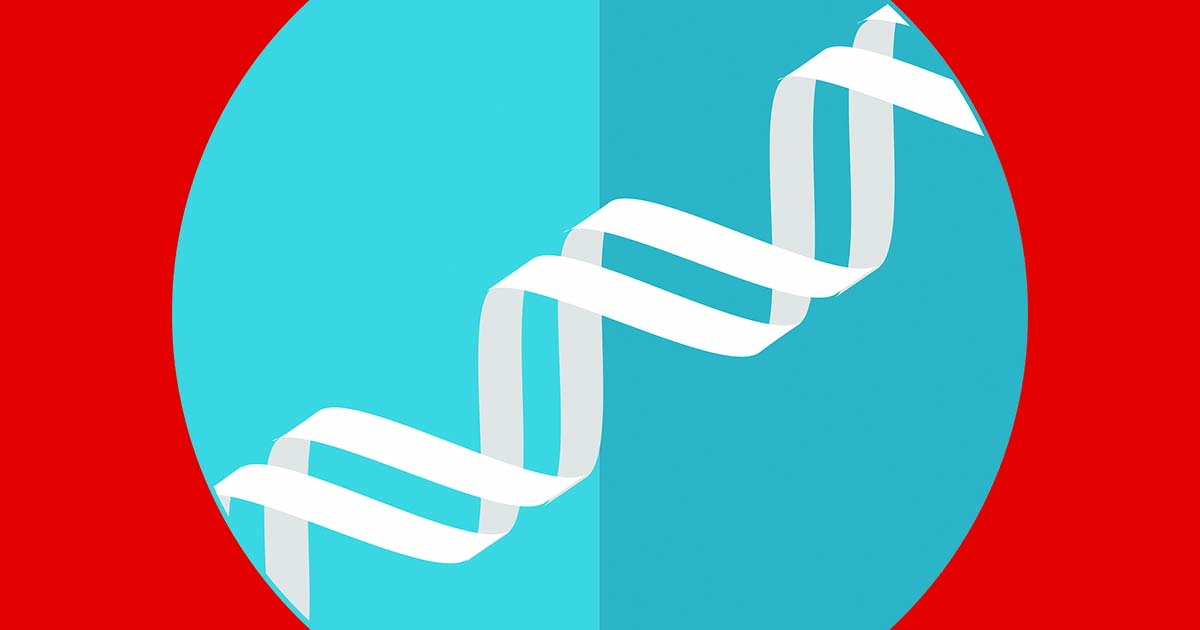
In 2003, one year before ISPU would issue its first stand-alone publication, ISPU Fellow Saeed Khan penned an entry in the Encyclopedia of the Human Genome titled “Race and Difference: Orientalism & Western Concepts.” The paper explored how Western thought’s historical use of science to promote racial difference and superiority may adversely affect approaches to scientific research in modem genetics. This paper represented the first time the ISPU name had been attached to a research offering and was presented at the University of California-Berkeley’s Islamophobia Conference in April 2003.
According to Khan, the paper was significant because it marked “ISPU’s entry into the academic and policy spaces . . . we were able to present it in multiple locations, and it showed that Muslim Americans were exploring cutting-edge issues well beyond the security debates that dominated the conversation in the post-9/11 era.”
American Muslim Youth Convening
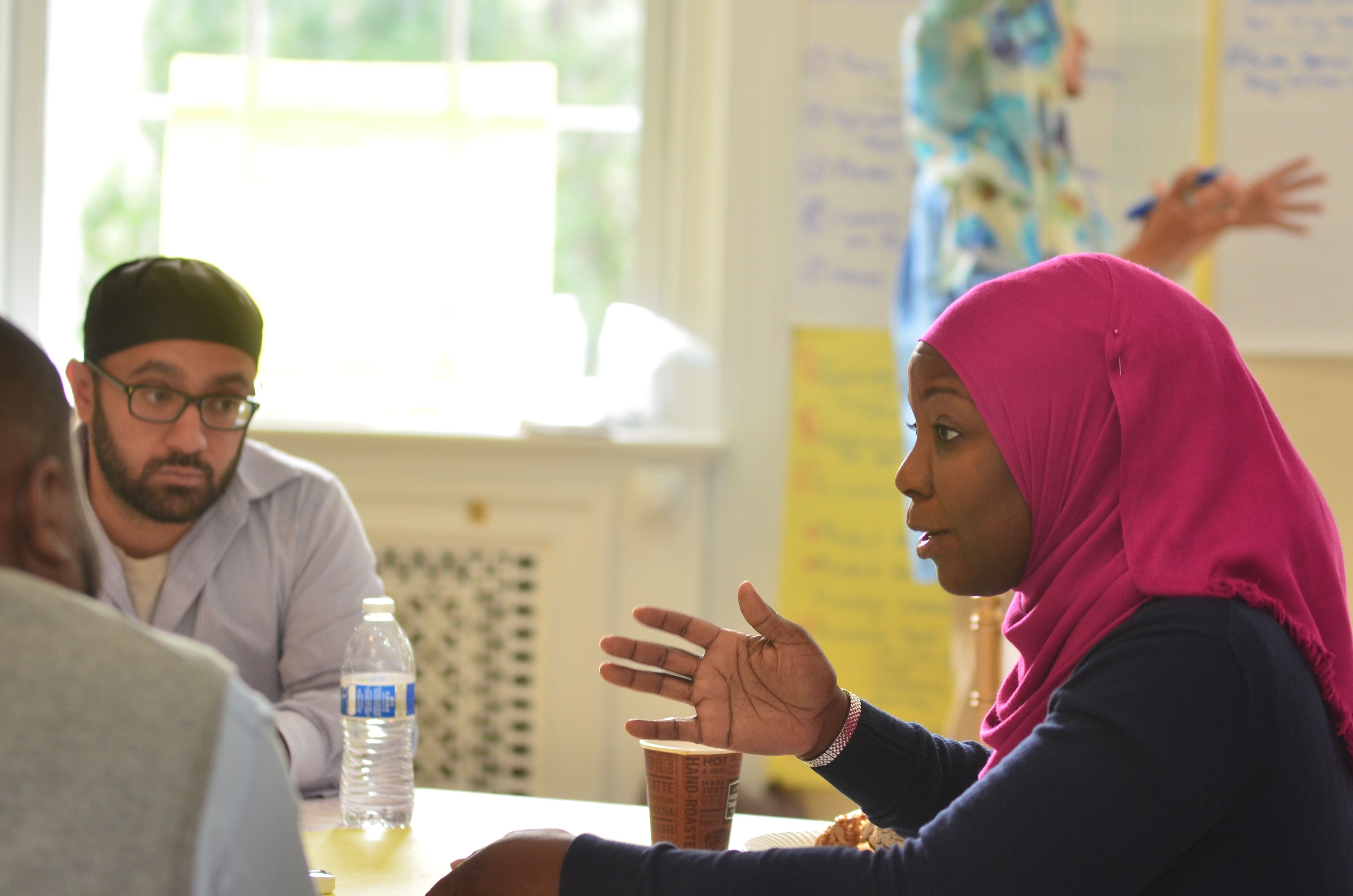
In June of 2015, ISPU brought together more than 30 imams, youth directors, mental health professionals, and academics from across the country to tackle five issues facing American Muslim youth: drug abuse, online safety, matters of race, religious literacy, and how better to care for convert youth. This diverse group of experts allowed for discussion and strategy planning on how to overcome a wide range of challenges in a number of different spaces. Rather than reinventing the wheel in separate silos, the group convening allowed for people to build new programs and update existing ones. Additionally, bringing both experts and the eventual implementers of our discovered recommendations into the same space allowed for the co-creation of solutions firmly grounded in research, data, and real-life experience, all the while assuring that such findings were crafted in a practical, implementable way.
The result was five reports and three related op-eds, which have been presented at mosques, shared across the Web and social media, and informed discussions on the many challenges facing young Muslims in America. An ally from the Mormon community stated that she was “blown away” by ISPU’s solution-seeking research on this topic, stating that while her community faced these same challenges, our work placed American Muslims “ten steps ahead” in the solution process.
Studying Bay Area Muslims

Nearly 250,000 Muslims–one of the highest concentrations of Muslims in the country–live, study, volunteer, and work in the Bay Area. In 2013, the One Nation Bay Area project commissioned ISPU to provide a better understanding of those who lived in the community, their languages, education, immigration and employment statuses, and to ask what civic engagement meant to them. Through this project, ISPU sought to honor the resilience of this diverse community in the face of continued misperceptions about American Muslims. It would also be the forebear of future ISPU nationwide polling projects.
The report, co-authored by former ISPU Director of Research Farid Senzai and ISPU Scholar Hatem Bazian, is still being referenced today. Just this year, data from the report was cited in an article about Muslims in the tech industry who face rising Islamophobia. Read the full report here.
Islamophobia: A Threat to All
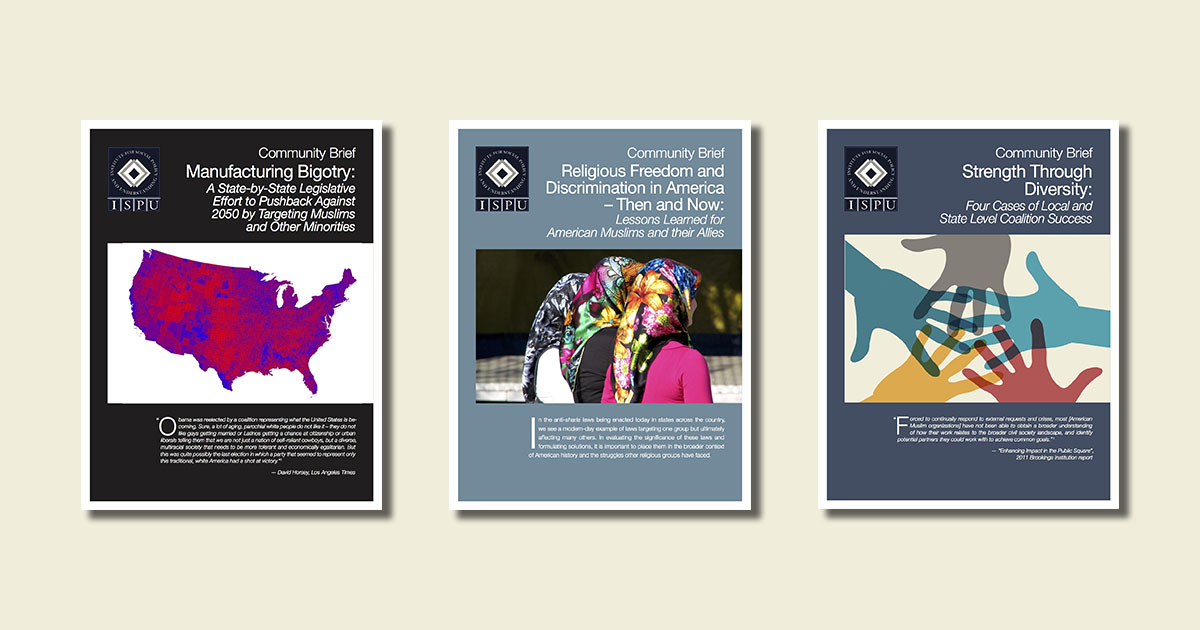
In 2014, ISPU launched its Islamophobia: A Threat to All report series. A collection of three reports and a data visualization map, this series looks at coalition building, religious freedom, and the intersectionality of Islamophobia and a number of other rights-restrictive initiatives. Three years later, one report, Manufacturing Bigotry: A State-by-State Legislative Effort to Pushback Against 2050 by Targeting Muslims and Other Minorities has remained as relevant as ever. According to report co-author Saeed Khan, “I was convinced that Islamophobia was less a disease unto itself than a symptom of a broader phenomenon as the country was moving toward becoming a majority-minority nation.” Today, community partners use Manufacturing Bigotry’s findings (as displayed on our interactive data visualization map) to prepare for meetings with state officials, who often support Islamophobic legislation as part of a greater pattern of discrimination. According to report co-author Alejandro Beutel, “Despite being published almost three years ago, the data-driven insights from Manufacturing Bigotry continue to remain as relevant as ever because of a political climate where overt bigotry, not just dog whistle politics using coded language, is once again becoming socially acceptable. The report is a social science contribution helping to directly inform social justice advocacy.”
The Formation of Our Washington, DC, Office
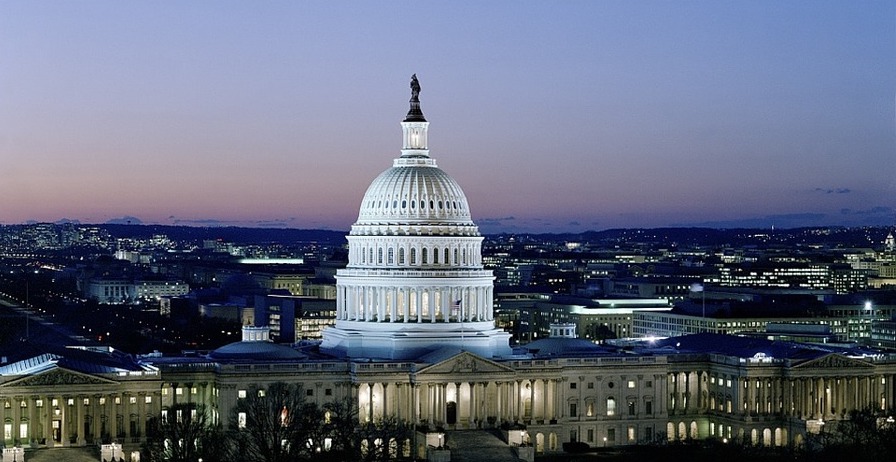
In February 2011, we opened our Washington, DC, office. While important community-level work was being done in Michigan, the addition of a DC office brought us closer to the policy makers and other stakeholders we sought to partner with. This location was added shortly after the hiring of Shireen Zaman, ISPU’s first full-time executive director, who said, “Opening a Washington, DC, office allowed ISPU to establish itself as a community-based organization that could have an influence on the national policy conversation and as a vital partner to other key allies and organizations. Unlike most ‘Beltway’ organizations, our growth was not top-down, but our expansion was a result of the demand for our work and the support of the community.”
ISPU Was Founded
The horrific events of 9/11 thrust American Muslims into the spotlight; the government, media, and public wanted information on Muslims, yet there wasn’t a go-to place for broad and reliable research. Where true data was lacking, half-truths and suspicion became increasingly common. To combat this disturbing trend toward misinformation, five friends from Michigan and a young scholar from California joined together and planned the research organization that is today ISPU. Recalls co-founder Muzammil Ahmed, “The thing that really had us worried was people trying to describe what the American Muslim community was like, in particular we had members of Congress who were saying that there’s a large number of extremists in mosques.” For co-founder Iltefat Hamzavi, “the goal was [to] provide a mirror—a real mirror for the community to look at itself and have others to look at it so that we can make a fair assessment.”
Over the past 15 years, ISPU has continued to strive toward this goal, evolving from a small think-tank to a nationally renowned research organization. In that time, we have published more than 150 reports and policy briefs, held trainings and convenings, provided necessary platforms for debate, and empowered American Muslims, policymakers, the media, and civic and religious leaders through data. Today, ISPU’s impactful research continues to fill an important need in the ever-changing American landscape.
Marriage and Divorce Study
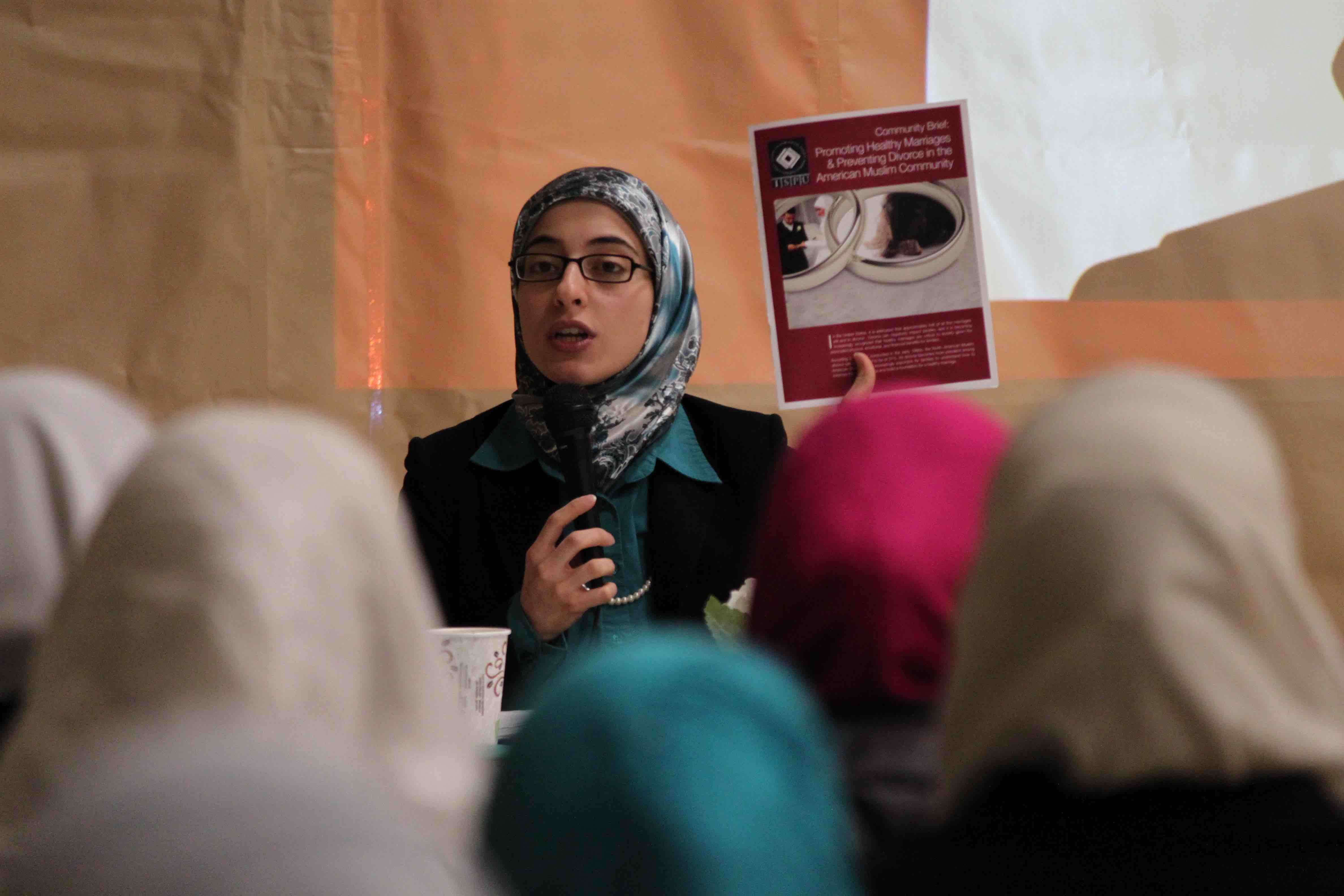
In June 2014, we published our Promoting Healthy Marriages & Preventing Divorce report. At the time, American divorce rates in the U.S. were decreasing since reaching a peak in the 1980s. However, in the Muslim community, rates were on the rise. Community leaders across the country expressed concern about marital discord and divorce rates in the American Muslim community, yet there was limited research on this issue and little in the way of resources for practitioners, religious leaders, and members of the community offering support to families facing challenging times. To help address the need and improve marriage outcomes in the American Muslim community, we embarked on an ambitious exploratory study.
The study provided an understanding of the ways in which American Muslims perceive and utilize marriage education and marital interventions. Researchers conducted individual interviews with imams, counselors, divorcees and married individuals to determine the use of and feasibility of marital interventions in the American Muslim community. Amal Killawi, the author of the report, says this much-needed research filled a gap: “The Marriage and Divorce Study shed light on the challenges experienced by Muslims in marriage, and it sparked a nationwide conversation about the need in our communities for both marriage preparation and support for struggling marriages.”
American Muslim Poll 2016
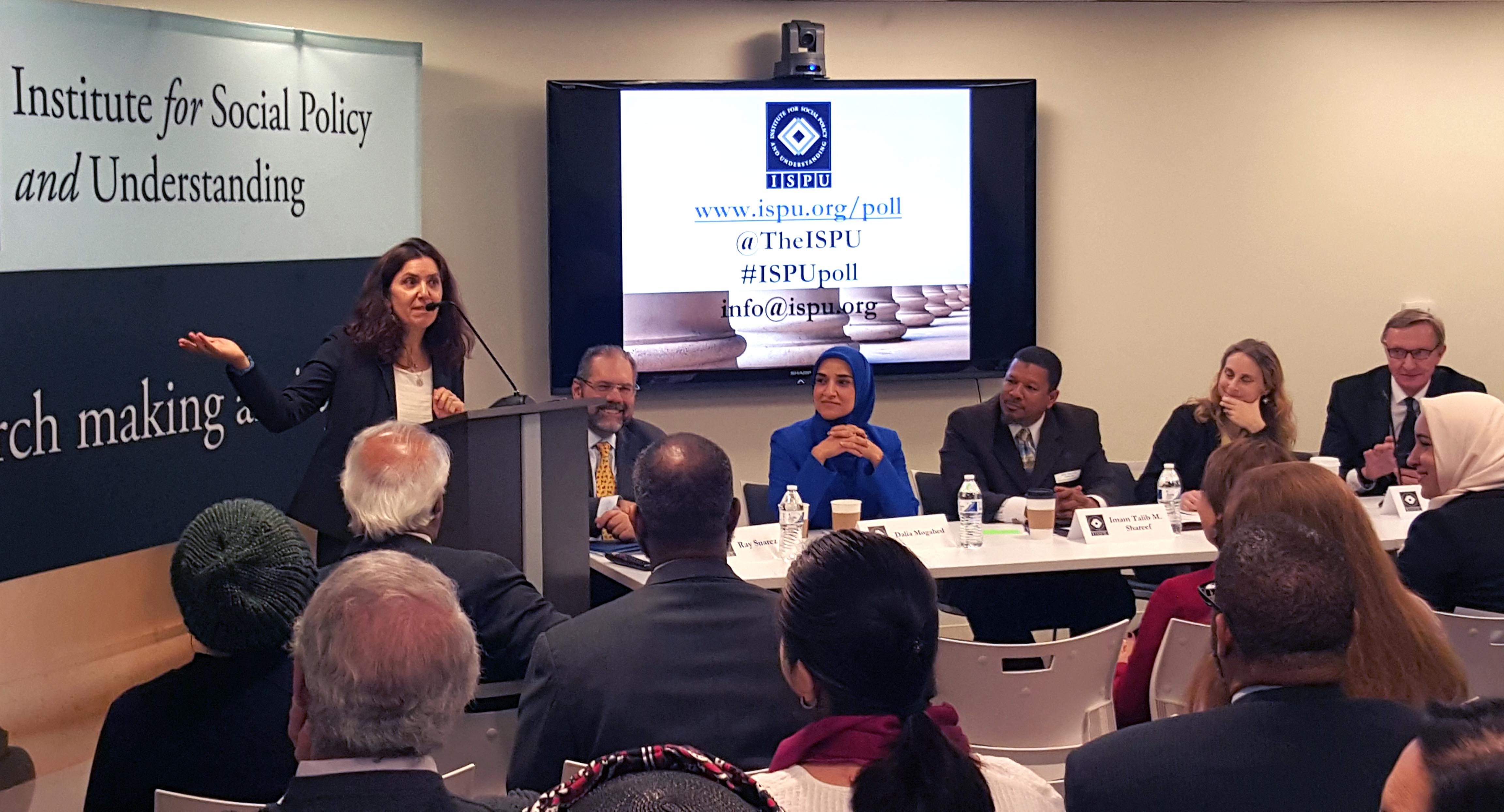
What are the attitudes, practices, and experiences of American Muslims? We sought to uncover the answers to these questions in our first nationwide survey: the American Muslim Poll. In March 2016, our poll results revealed the opinions of various faith groups on topics such as religion, politics, violence, identity, and so much more. Our goal: to insert Muslim voices into discussions about Islam that tended to neglect their perspectives, offering a badly needed, evidence-based contribution to an often misinformed discussion. What emerged was the profile of a Muslim community that was both pious and patriotic, optimistic and weary of discrimination, similar to Jews in its politics, and much like Protestants in its religious practice.
Throughout 2016, the poll’s research findings were cited in at least 60 different news publications, including a CBS News special. It underpinned efforts to combat bullying in schools, trained educators and law enforcement, and informed governmental agencies and White House officials. It also enabled educators like Prof. Todd Green, who said: “I refer to ISPU’s American Muslim poll when I give public talks on Islamophobia. It helps to nuance the picture of American Muslims and to challenge unfair stereotypes concerning Islam’s compatibility with the U.S.”
Detroit Mosque Study
In April 2004, we published our first report, the Detroit Mosque Study. This study gave a statistical overview of Detroit mosques and their attendees, and sought to “sift rumor from reality in regards to American mosques.” According to report author Dr. Ihsan Bagby, this report’s significance was in the way it began a conversation about American mosques and their leadership. He felt that an evidence-based discussion was key to a greater understanding of the Muslim community generally and a necessary step in improving their standing in the society at large.
For ISPU, this study held deep significance. Less than three years after the organization’s founding, the Detroit Mosque Study was ISPU’s first published contribution to a much-needed discussion about American Muslims. Even now, after 15 years and more than 150 reports and policy briefs, ISPU always remembers fondly its first success at educating the public and countering fear with facts.
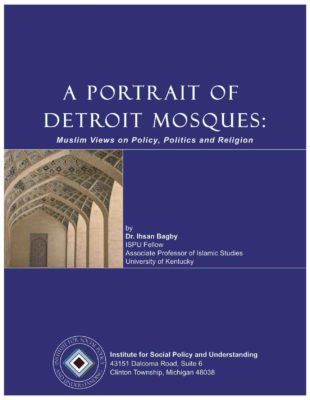


Thank you for sharing your important work! With increased awareness about your solid data driven research, media outlets will seek out your scholars for the real deal instead of relying on pundits to paint a story.
–Aliya Poshni, Donor
What do American Muslims think? How do they feel? How do they act in many circumstances? What are the challenges that are facing our communities? These are some of the most pressing questions that we don’t have answers to except when ISPU starts to come in.
–Alejandro Beutel, ISPU Scholar
I think if I had to describe ISPU in one word, I would use two words: game changer in that it’s providing data and much-needed information that is credible about what Muslims are about. . . . There is nobody else in the country I know doing it.
–Dean Obeidallah, Columnist and Host of The Dean Obeidallah Show
ISPU . . . is really the culmination of a vision of how Muslim Americans can have a seat at the table in clarifying and correcting and even shaping the narrative about Muslim Americans.
–Saeed Khan, ISPU Scholar & Co-founder
ISPU is ammunition in this campaign to deal with misinformation, misunderstanding, and a poverty of relationships. Because for some people they need more than just a picture, they need more than just my saying something—they need data.
–Steve Spreitzer, Michigan Roundtable for Diversity
ISPU . . . is a tremendous resource for not only the American Muslim community but the entire American community. . . . It gives a voice to a community that sometimes has other people speaking for it, for better or worse.
–Moheeb Murray, ISPU Board Member
In this current era, I believe that ISPU is essential. And it is essential because the American Muslim community needs data in order to help organize our community in an efficient way.
–Dawud Walid, CAIR-MI
.

$636,111 of our $640,000 goal










